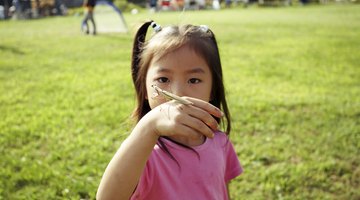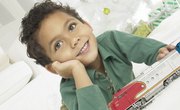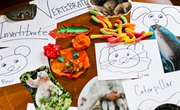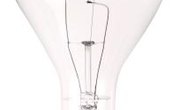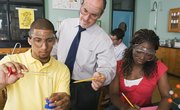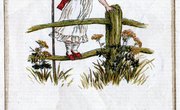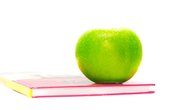Covering your kitchen table with bugs, leaves, clay, paint or sticks may not be your first decorating choice for your home. However, fostering a love for science begins early, and opening up your dining room for science discoveries will teach your child the skills and vocabulary he needs to make a great scientist. Preschoolers learn best by doing, and even if that means a messy table occasionally, encourage your budding scientist by teaching important science words and concepts that all scientists use.
Observe
Your curious preschooler will find many science concepts fascinating, but he will learn more about them if he learns to observe closely. Teach your child how to use all his senses to observe the world around him by noticing differences and similarities about the size, color, shapes and location of any object he collects. Help him gather bugs, rocks, seeds or leaves and categorize all the information he observes. Find your child’s interests and give him opportunities to study them closely. Preschool children often switch interests quickly so be prepared to jump to other categories quickly. Don’t force them to pursue something they do not find interesting anymore. Do record his observations and help him make a hypothesis or an explanation for what he has observed.
Explore
Share with your preschool child how to learn science by exploring. Bring out ice pops and explore ways to make it melt faster, to show cause and effect. Use magnets to find out what end repels and which one attracts. Go outdoors and explore the shrubs, a small pond or nearby forest to find examples of living and non-living things. Make homemade bird feeders and explore ways to attract more birds to your backyard. While exploring science may not help your house stay neat and tidy, it will help your little one use his natural curiosity to learn more.
Experiment
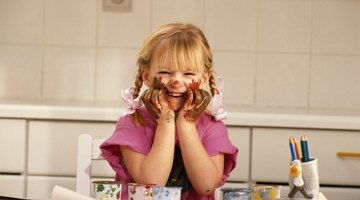
Children need to learn that they can formulate their own questions and use experiments to find out the answers. Write down your child's thoughts as she experiments to encourage her to predict answers. For example, gather a large container of household objects and predict which ones will float in water. Make a chart with your child’s predictions and as you do the experiment together, record the results. Use food coloring to experiment how much is needed to make various shades of homemade play dough, or mix paint to make new colors to use in his art masterpieces.
Record Processes
Many universal laws in science take place over time or involve a process. Teach your child about life cycles and the weather by discussing their processes. In a terrarium or aquarium, watch a tadpole change into a frog. Catch a caterpillar and look up books explaining how it changes into a butterfly. The water cycle is a process they can observe frequently when it rains, and planting seeds indoors can show how a seed becomes a plant. Spend a little bit of time every day sharing with your little one how the process is working, and don’t forget your preschooler can help you with the unending process of tidying up the toys and your science messes.
Related Articles
References
Resources
Writer Bio
Rebecca Bagwell is an educator with a bachelor's degree in secondary education from Trinity Baptist College. She has taught in China and the United States. While overseas she started writing articles in 2006 for bilingual trade journals. Now, she lives in the South where she homeschools and writes freelance articles encouraging creative approaches to education.

